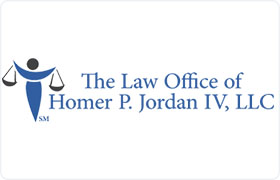Jenkinsburg Divorce & Family Law Lawyer, Georgia
Sponsored Law Firm
-
 x
x

Click For More Info:
-
The Law Office of Homer P. Jordan IV, LLC
125 Townpark Drive Suite 300 Kennesaw, GA 30144» view mapDivorce & Family Law Legal Solutions for a Brighter Tomorrow
At The Law Office of Homer P. Jordan IV, LLC in Kennesaw, we are dedicated to helping clients throughout the Atlanta area, including Cobb, Cherokee and Paulding counties.
800-590-3350
Janice F. Alfred
✓ VERIFIEDDivorce & Family Law, Child Custody, Paternity, Alimony & Spousal Support, Adoption
The Right Attorney Makes The Difference! Find Out How We Can Fight For You!
Attorney Janice Alfred is the managing attorney at the Alfred Law Firm. She has been practicing law in the state of Georgia since 2004. Ms. Alfred c... (more)
Ronny E. Jones
✓ VERIFIEDAccident & Injury, Car Accident, Medical Malpractice, Estate, Divorce & Family Law
Ronny Jones is a practicing lawyer in the state of Georgia. Attorney Jones received his J.D. from the Georgetown University Law Center in 1982.
FREE CONSULTATION
CONTACTAmy Melissa Fletcher
Tax, Wrongful Termination, Divorce & Family Law, Bankruptcy, Business
Status: In Good Standing
Andrea Yavette Boyd
Family Law, Divorce & Family Law, Civil Rights, Personal Injury, Accident & Injury
Status: In Good Standing Licensed: 11 Years
 Homer Jordan Kennesaw, GA
Homer Jordan Kennesaw, GA AboutThe Law Office of Homer P. Jordan IV, LLC
AboutThe Law Office of Homer P. Jordan IV, LLC Practice AreasExpertise
Practice AreasExpertise


